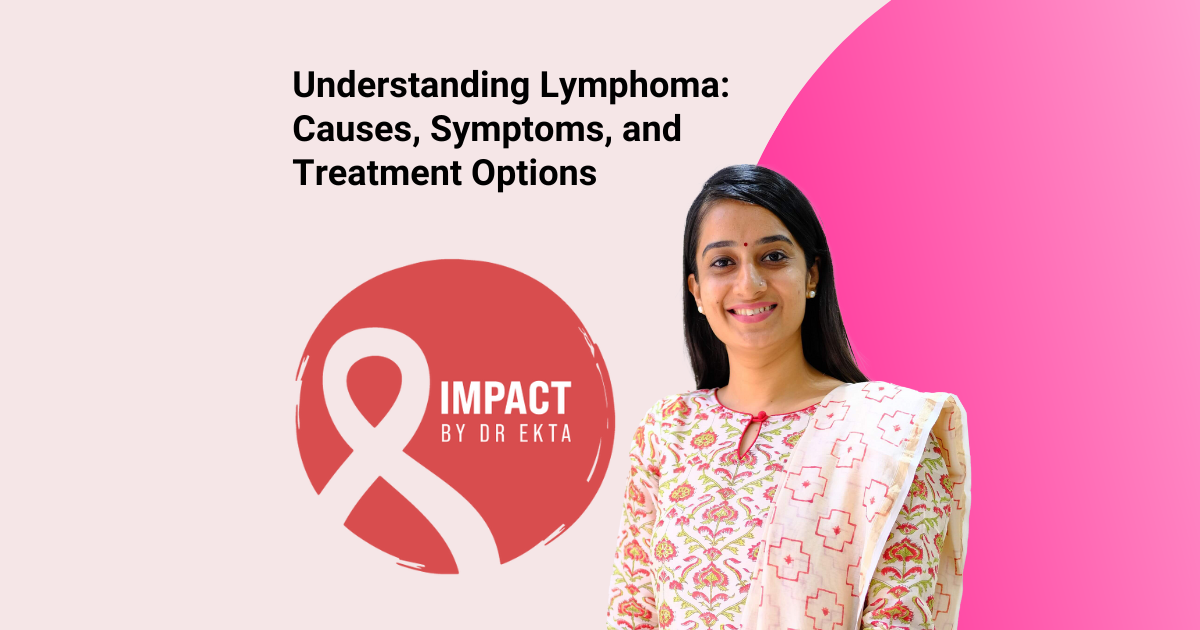Introduction:
As a medical professional specializing in oncology, I’ve encountered numerous patients facing the challenges of lymphoma. Understanding the intricacies of this condition is vital for providing effective care and support.
Lymphoma, a type of cancer that affects the lymphatic system, can be a daunting diagnosis. It’s crucial to comprehend its causes, recognize its symptoms, and understand the available treatment options to navigate this challenging journey effectively. In this blog, we’ll delve into the depths of lymphoma, shedding light on its intricacies and offering insights for those affected.
Understanding:
Lymphoma originates in the lymphocytes, a type of white blood cell crucial for the immune system’s functioning. These abnormal lymphocytes multiply uncontrollably, forming tumors in lymph nodes or other lymphatic tissues. There are two main types of lymphoma: Hodgkin lymphoma and non-Hodgkin lymphoma, each with distinct characteristics.
Causes:
The precise cause remains unclear, but several factors may contribute to its development:
Genetic predisposition: Individuals with a family history or certain genetic mutations may have a higher risk.
Immune system dysfunction: Conditions weakening the immune system, such as HIV/AIDS or autoimmune diseases, can increase susceptibility.
Exposure to certain chemicals or radiation: Prolonged exposure to pesticides, herbicides, or radiation may elevate the risk of developing lymphoma.
Infectious agents: Infections with certain viruses, such as Epstein-Barr virus (EBV) or Helicobacter pylori, have been linked to an increased risk.
Symptoms of Lymphoma:
Lymphoma symptoms can vary depending on the type and stage of the disease. Common signs and symptoms include:
- Swollen Lymph Nodes: One of the hallmark symptoms of lymphoma is painless swelling of lymph nodes. These enlarged lymph nodes are often palpable and may be detected in areas such as the neck, armpits, or groin. While lymph nodes commonly swell in response to infections, persistent enlargement without an apparent cause warrants further investigation.
- Fever and Night Sweats: Many individuals experience persistent fever, often accompanied by drenching night sweats. These symptoms may be indicative of the body’s immune response to the presence of cancer cells. Night sweats, in particular, can disrupt sleep and significantly impact quality of life.
- Unexplained Weight Loss: Significant and unexplained weight loss over a short period is another common symptom of lymphoma. Patients may notice a decrease in appetite coupled with unintentional weight loss, which can be concerning and indicative of underlying health issues.
- Fatigue: Persistent fatigue and weakness are prevalent among individuals with lymphoma, even with adequate rest. This profound sense of tiredness can interfere with daily activities, impairing both physical and cognitive functioning. Fatigue may result from the body’s efforts to combat cancer or from the disease’s impact on energy metabolism.
- Itchy Skin: Pruritus, or itchy skin, is a distressing symptom experienced by some lymphoma patients. This itching sensation can occur without any apparent cause and may be localized or generalized. Itchy skin can significantly diminish quality of life and may worsen during periods of stress or anxiety.
- Enlarged Spleen or Liver: Lymphoma can lead to the enlargement of organs such as the spleen or liver, resulting in abdominal discomfort or fullness. Patients may experience pain or tenderness in the upper left abdomen due to an enlarged spleen, while an enlarged liver can cause a feeling of heaviness or bloat in the right upper abdomen.
It’s important to note that while these symptoms are common in lymphoma, they can also occur in other conditions. Therefore, individuals experiencing persistent or concerning symptoms should seek medical evaluation for an accurate diagnosis and appropriate management. Early detection and intervention can significantly improve outcomes for individuals with lymphoma.
Treatment Options for Lymphoma:
The treatment approach depends on various factors, including the type, stage, and overall health of the individual. Common treatment options include:
Chemotherapy: Powerful drugs are used to kill cancer cells or stop their growth.
Radiation therapy: High-energy rays target and destroy cancer cells in specific areas of the body.
Immunotherapy: Harnesses the body’s immune system to recognize and attack cancer cells.
Targeted therapy: Drugs target specific abnormalities within cancer cells, disrupting their growth.
Stem cell transplant: Healthy stem cells are infused into the body to replace damaged or diseased cells after high-dose chemotherapy or radiation.
Conclusion:
Lymphoma is a complex disease that requires a comprehensive understanding and a tailored approach to treatment. By recognizing the causes, symptoms, and treatment options, individuals can take proactive steps in managing their condition. Seeking prompt medical attention and adhering to the prescribed treatment plan is vital for improving outcomes and enhancing the quality of life for those affected by it.
In conclusion, while its diagnosis may seem daunting, there is hope and support available. With advancements in medical research and innovative treatment modalities, individuals can embark on their journey toward healing with confidence and resilience.

